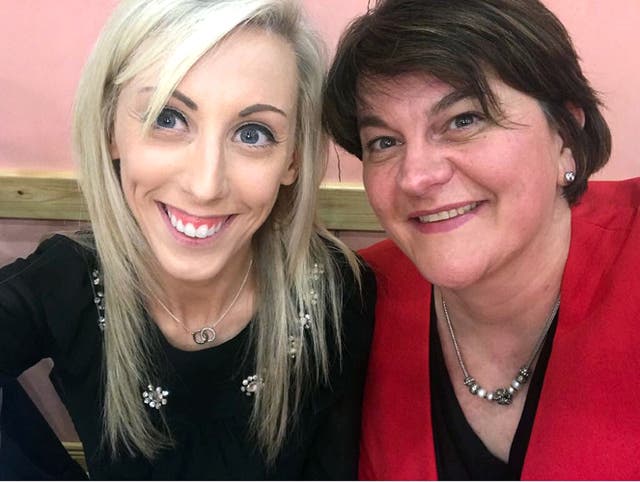Politicians must stop treating each other as enemies – Arlene Foster
The DUP leader said political discourse in Northern Ireland has become too nasty.

Arlene Foster has urged politicians in Northern Ireland to stop treating each other as enemies.
The DUP leader expressed concern at what she described as an increasingly nasty public discourse in the region.
Mrs Foster also criticised social media companies for not doing more to tackle abuse directed at female politicians from faceless internet trolls.
Reflecting on a General Election campaign described by some commentators as the most acrimonious in recent times, Mrs Foster called for an end to the vitriol.
“We do need to be able to disagree in political life of course, but that doesn’t make us enemies, it makes us political opponents,” she told the PA news agency.
“And I think, unfortunately, society has got to the stage now that if you disagree with somebody, you’re automatically an enemy.”
She added: “I think things have for many different reasons reached a stage where it is very nasty in very many arenas.”
Among incidents on the campaign trail so far, Sinn Fein candidate John Finucane and SDLP candidate Claire Hanna have been targeted by inflammatory loyalist banners while DUP candidate Carla Lockhart was subjected to a torrent of internet abuse about her appearance.
Mrs Foster, who branded the banners “unsavoury”, said women politicians in particular seemed to be singled out for abuse online.
“I think women in politics are targeted probably more, we do get more commentary in relation to our appearance and in relation to our representation,” she said.

“I think social media is a wonderful tool to be able to communicate with people in a very democratic way, so I can put something up on Twitter and communicate with everybody in relation to what I believe on a certain issue,” she said.
“But it is also a place which allows people to set up accounts anonymously, and target people in a very direct way. And I think in that respect, I think both Twitter and Facebook could do more to try and deal with those issues.”
On the wider political climate in the region, Ms Foster said: “Those of us who are in public life in Northern Ireland get a lot of personal abuse, whether it’s on social media, or sometimes the mainstream media. And we have to deal with that.
“And I have been involved actually with trying to push forward a more civic discussion in public life so that we can have our differences.
“Of course, we’re not going to agree on many issues – that’s what politics is about, trying to persuade each other of our own political philosophy. And so we’re going to disagree on those issues. But that doesn’t make you an enemy; it makes you an opponent.”





